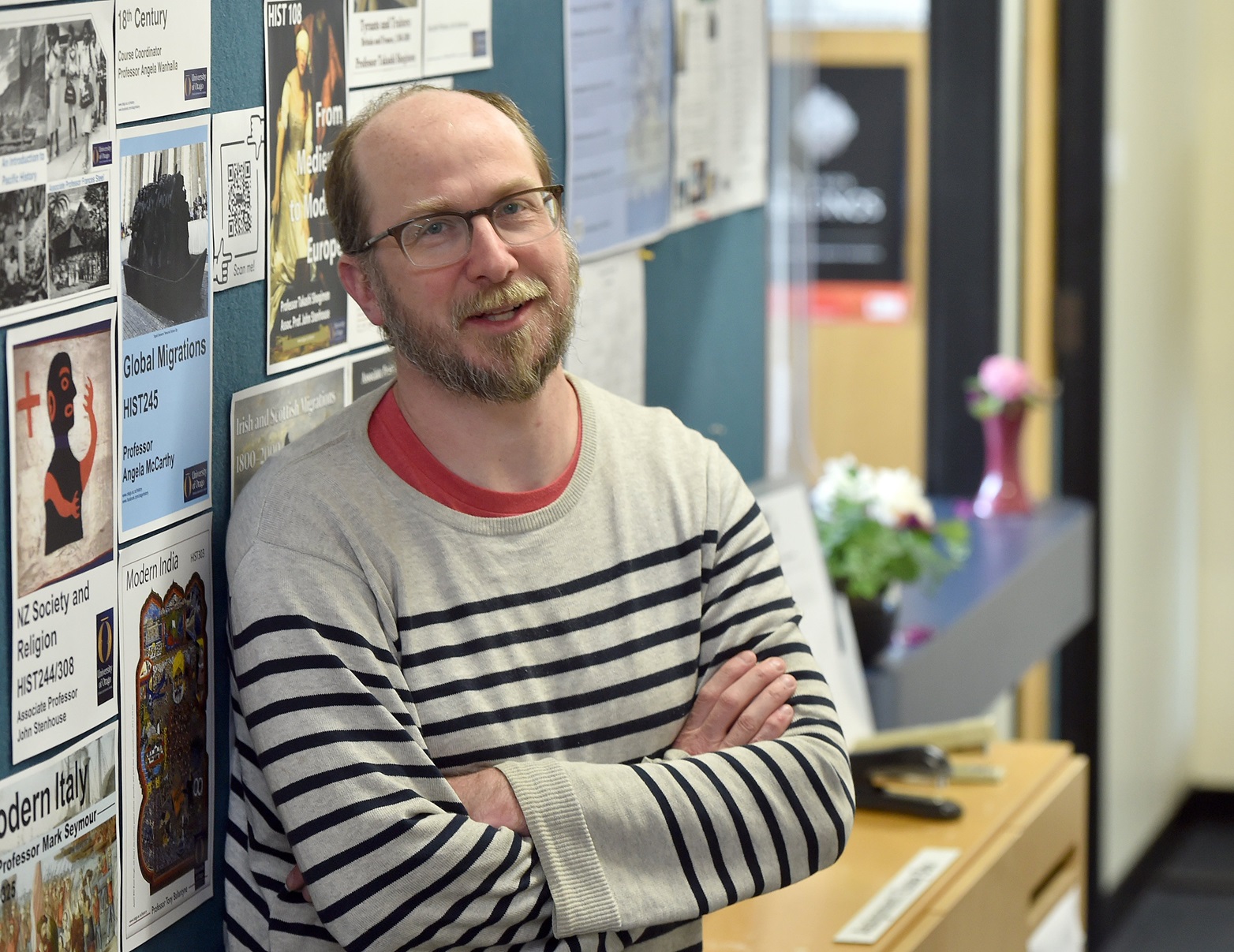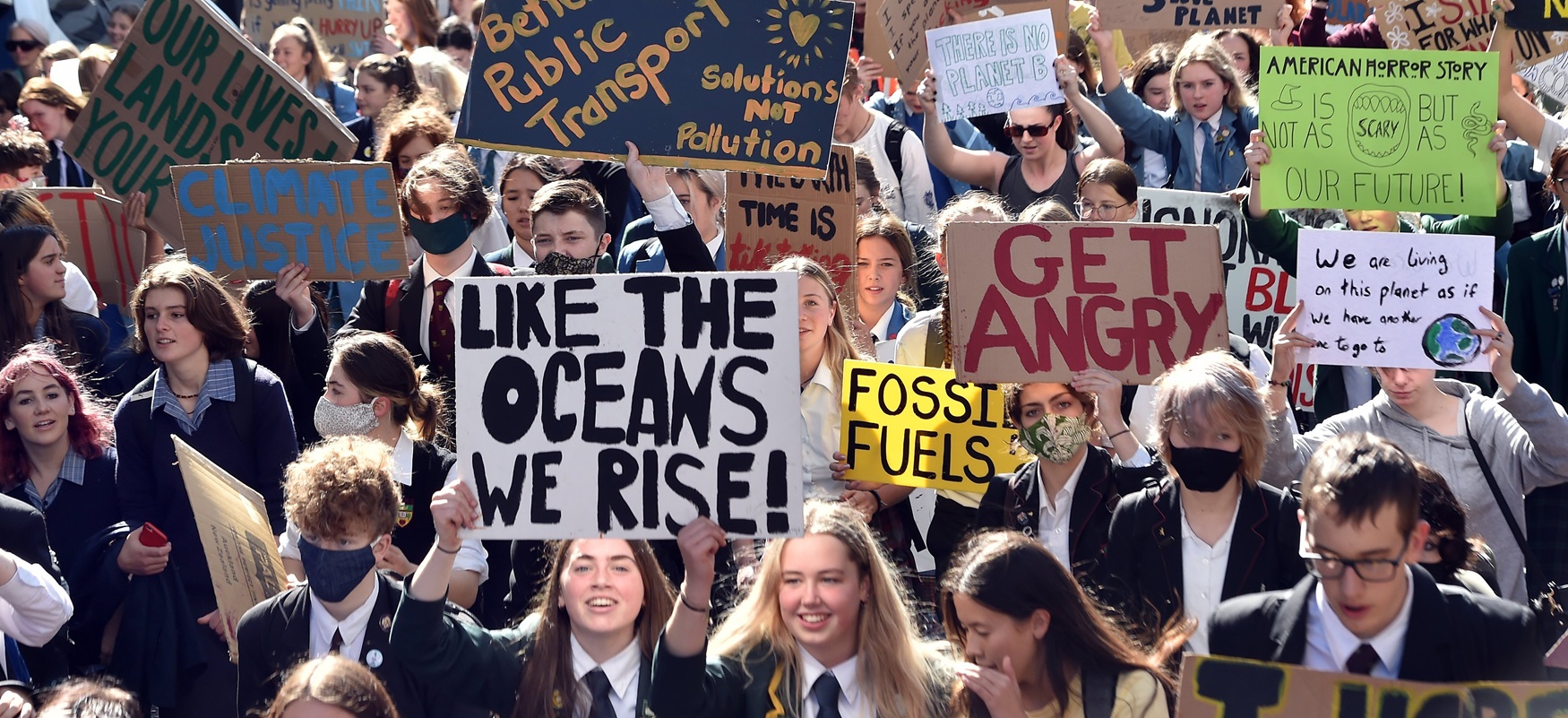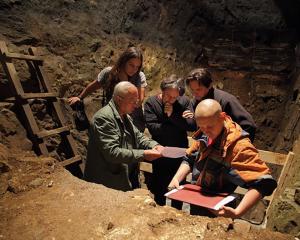
If the dial is going to shift on climate change action, we’ll need to re-engage with politics.
It’s a view political theorist Benjamin McKean has begun to address in his De Carle Distinguished Lecture Series, hosted by the University of Otago, which continues across the coming several weeks.
That sort of popular engagement with the issue looked a prospect a few short years ago, when School Strike 4 Climate, among other expressions, brought thousands out on to the streets. Politics again looked like it might be about the people.
But not so much lately.
There are numbers that suggest it should not be so difficult to rediscover that sense of urgency and purpose. International climate journalism initiative Covering Climate Now recently launched the 89 Percent Project, named for the proportion of the world’s population who want stronger government action.
Yet, even in this environment of apparently widespread concern, here in Aotearoa the National-led coalition has back-pedalled on a slew of carbon-cutting measures, leaving the country’s efforts languishing in the "highly insufficient" section of international assessments. Worse still, Trump’s America.
Perhaps consistent with this gloomy outlook, Assoc Prof McKean began his lecture series discussing whether despair is an obstacle to achieving climate justice. And whether hope is really necessary.
Assoc Prof McKean, a graduate of United States universities Princeton and Harvard and now based at The Ohio State University, is researching the inadequacy of existing political concepts for addressing climate change. And continuing that work in his six-part lecture series at Otago, titled "Climate change politics".
Part of the issue, in terms of state-level action on climate change, Prof McKean says, is that our liberal democratic institutions have often not been deeply democratic.
"They’re not as responsive to reason as we’d hoped."
That, at least, has been the case in the US, which he knows best, he says.
"They’ve had a kind of shallow level of democracy where people’s input is occasional and not always taken seriously."
But the sense of disempowerment extends further yet.
"One of the things that I think is really striking about this moment, looking at things like the Trump administration, is that you have these people who occupy the centre of power who still believe these conspiracy theories about who’s really in charge. And you’d think, ‘look, you guys are running the show’."
We’ve set up society in a way where nobody feels like they’re steering the ship.
"Nobody feels like they have power, even the world’s richest man."
They are insights related to Prof McKean’s previous work, which unpacked the dominant economic narrative of these past several decades.
In 2020 he published Disorienting Neoliberalism: Global Justice and the Outer Limit of Freedom, in which he argued for solidarity across borders between people facing the injustices of the economic order.
That involved questioning some deeply embedded myths of the neoliberal project, beliefs that had become almost unassailable in the years following its rise to orthodoxy in the the 1970s and
’80s. Politicians declared "there is no alternative" and the project was ultimately declared triumphant by American political scientist Francis Fukuyama after the collapse of Soviet Russia — history had ended.
McKean says the suggestion that we’ve been on an unalterable course is part of what has led to the delegitimisation of our democratic institutions.
Indeed, neoliberalism’s prophet, Milton Friedman, suggested people should prefer going grocery shopping to voting because the supermarket offered better choices than electoral politics’ tired binaries.
"They argued we should minimise politics and expand the market," McKean says.
In as much as people remained engaged with politics it was as something to consume, as an audience rather than a participant.
However, as there is no sign the market is addressing the climate crisis and little prospect it will begin the work — indeed, no indication yet that anyone has the answer — we’re left with the problem of how to reinvigorate our politics in a way that might.
Enter the political theorist, and the task of interrogating our lethargy.

"And so for people who’ve grown up under certain kinds of political and economic institutions, I mean, of course they make sense to us.
"But the problem is in a deep sense they don’t make sense. In a deeper way there’s a lot of irrationalities and contradictions built into the system. And because we’ve grown up with them we’ve learned all these ways of smoothing them out and ignoring them.
"And so I think part of what trying to understand how to deal with these major challenges requires, is sort of unlearning some of those ways of seeing the world that come naturally to us because we’re just used to the way things are. And realising just how deep some of these contradictions and irrationalities go."
The return of Donald Trump — a product of the massive, oligarchy-producing inequalities generated by neoliberalism — has at least put these irrationalities into sharper relief, he says. It could previously be argued that former president Joe Biden’s Inflation Reduction Act climate policies had the country on track. There is no longer any room for such self-deception.
In fact, Trump’s determination to expunge any and all action on climate involves a kind of funhouse mirror recognition of the significance of the issue, McKean says.
Part of that is the authoritarian leader’s determination to dominate nature, even at the cost of making the situation worse.
In his work for Disorienting Neoliberalism, Prof McKean looked at the international supply chains of global commerce, including the likes of fast fashion and the way in which it connects the sweatshops of the developing world to the label conscious consumers of the West. The work highlighted the globe-spanning nature of the beast and the attendant potential for international solidarity.
So, turning his attention to climate change, he initially expected it would be relatively easy to extend that work.
"My argument in the book about neoliberalism is about how we have a shared interest in changing these global economic institutions," he says.
"And I thought, well, we pretty obviously all share an interest in avoiding catastrophic climate change. Surely applying these kinds of arguments to that issue will be pretty straightforward.
"That was wrong."
Climate change requires us to deeply rethink a lot of the core concepts we use to understand politics, he says.
Solutions need to encompass the planetary scale of the challenge and the requirement to change the physical energy infrastructure that powers our world. We’ll need to rethink what progress looks like, what counts as progress.
And while global supply chains mean we’re intimately connected to those sweatshop workers in the developing work, because we wear their work every day, the features of the climate crisis don’t operate in quite the same way, he says.
"They seem to be harder to narrate because they involve these systems that everybody’s contributing to in a different way. But they’re similar in the fact that we have these lifestyles that both are very convenient for us because they’re the things that we’re used to, but they’re also not sustainable."
Still, there clearly remains a role for solidarity, as we certainly are in the climate crisis together.
As a political theorist, McKean sees his role as helping people understand some of this, the world we live in, so citizens can make their own informed judgements about what to do.
"The way that I talk about it, is I use this language of orientation."
It’s not about telling people what do to, which he notes would not be very democratic.
"What I can do is offer some concepts to help understand where we are and how we got here, with the hope that then we might be able to see some political possibilities, some political openings."
The lectures
• Tuesday, 8 April: Can popular sovereignty help us avoid climate catastrophe?
• Monday, 14 April: Does calling climate change a "global" problem erase indigenous politics?
• Tuesday, 29 April: Does addressing climate change require us to shift our understanding of "the market"?
• Tuesday, 6 May: Reorienting our way of seeing nature as a path to solidarity
Venue: Hutton Theatre, Tūhura Otago Museum, all lectures 5.30pm-7pm and open to all.












